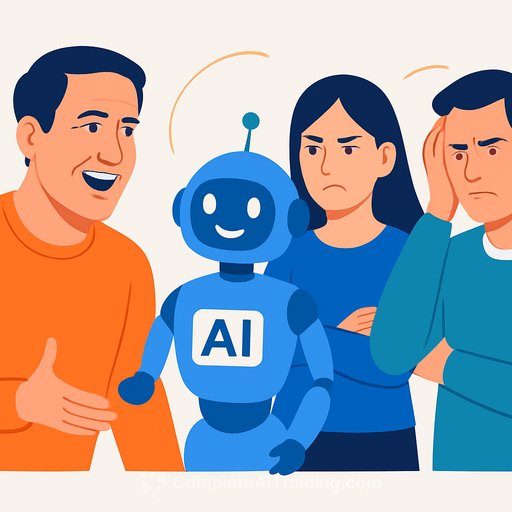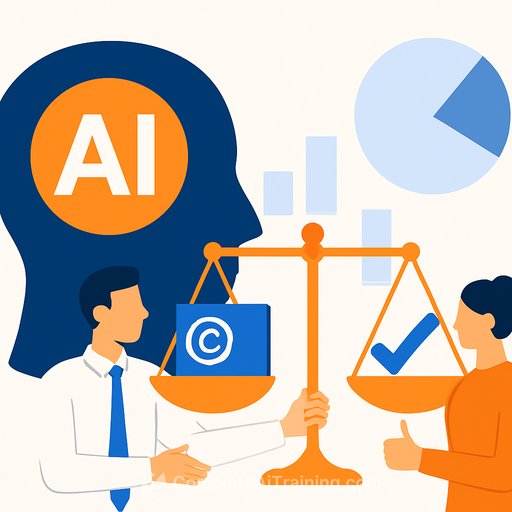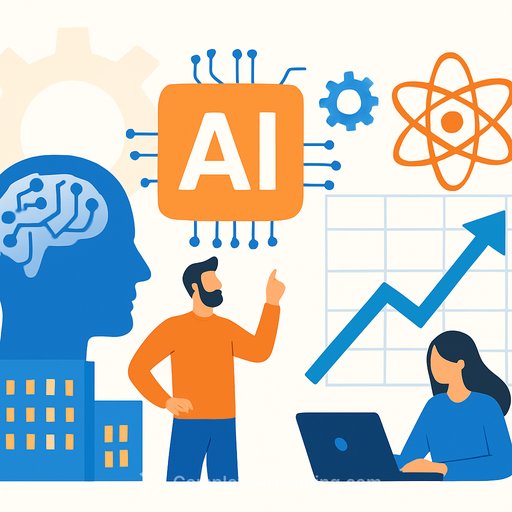Spotify teams with major labels on "responsible" AI music tools
Spotify is developing AI tools in partnership with Sony Music, Universal Music Group, and Warner Music Group, with a stated goal of putting artists and songwriters first. The company says participation will be optional, licensing will be explicit, and contributors will be credited and paid through upfront agreements.
Merlin and Believe are also part of the deal. Spotify has started work on its first products, though the details haven't been shared yet.
What this means for creatives
The signal is clear: opt-in AI features, licensing at the source, and a paper trail that credits and compensates real people. If executed well, that could mean new revenue lines and safer experimentation for artists who want AI in their toolkit.
The other side of the coin is real: more AI content can dilute streams for human artists. Manager Max Bonanno says AI has already "diluted the already limited share of revenue that artists receive from streaming royalties."
How Spotify frames it
Spotify says it will respect copyright, let artists choose if they want in, and pay rights holders transparently. "Technology should always serve artists, not the other way around," said co-president Alex Norström.
Ed Newton-Rex, founder of Fairly Trained, called the approach a step toward a more ethical AI industry, emphasizing permission and credit. The execution will matter more than the press release.
The current AI line inside Spotify
Spotify doesn't produce music, but it uses AI for features like the AI DJ and custom playlists. It hosts AI-generated tracks, and it's cracking down on undisclosed use or impersonation.
A viral 2023 track that cloned Drake and The Weeknd was removed. The company also notes AI already shows up in production-autotune, mixing, mastering-as seen in The Beatles' "Now and Then," which used AI to clean John Lennon's vocal from an old recording.
Labels and partners involved
Licensing discussions include Sony Music, Universal Music Group, and Warner Music Group-the majority of the commercial catalog. Merlin and Believe are also participating.
What to watch next
- Opt-in controls: Clear settings for voice, likeness, stems, and usage contexts.
- Licensing clarity: Who can train on what, and how payouts flow to songwriters and session players.
- Attribution standards: How credits travel across AI-assisted tracks and remixes.
- Fraud detection: Stronger filters against impersonation and undisclosed AI vocals.
- Royalty models: Whether AI-assisted tracks will change splits or rates.
Practical steps for artists and teams
- Audit your catalog and contracts. Flag what can be licensed for AI training or transformation-and what is off-limits.
- Set your preferences early. If Spotify offers opt-in controls, define them before the defaults define you.
- Protect your voice and likeness. Register voice models, store watermarked versions, and monitor takedowns.
- Tighten metadata. Agree on credits, ownership, and splits for AI-assisted work before sessions start.
- Experiment with boundaries. Use AI for workflow gains-demos, comping, cleanup-while keeping your signature sound human-led.
- Track platform policy updates. Small rule changes can affect payouts, discovery, and brand risk.
- Build outside the stream. Sync, memberships, and live keep you less dependent on fluctuating per-stream income.
- Skill up on AI literacy. Know what's allowed, how to disclose, and how to negotiate usage rights.
Bottom line
This could be a healthier model for AI in music-consent first, clear credit, real pay. It could also flood the feed with synthetic tracks if the gates are loose.
If you're a creative, control the terms: what gets trained, how your voice can be used, how you're credited, and what you're paid. Don't wait for the fine print to decide for you.
Further reading: Spotify Newsroom | Fairly Trained
Learn more: AI courses for creatives
Your membership also unlocks:






